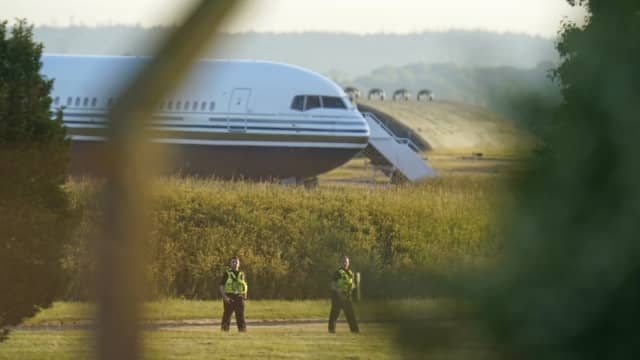

The European Court of Human Rights (ECHR) on Tuesday night intervened at the eleventh hour to halt – at least temporarily – the transfer of the first group of migrants who are deemed to have arrived in the United Kingdom illegally this year.
The flight had been arranged after courts in the UK had ruled in favour of the transfers ahead of a pending full trial on the legalities around the Migration and Economic Development Partnership signed between London and Kigali in April.
In the immediate aftermath of the ECHR’s injunctions, both the UK and Rwanda reaffirmed their commitment to the agreement, which seeks to help dismantle people-trafficking networks that continue to risk thousands of lives of desperate migrants trying to cross the English Channel.
"We are not deterred by these developments. Rwanda remains fully committed to making this partnership work. The current situation of people making dangerous journeys cannot continue as it is causing untold suffering to so many,” Rwanda government SpokespersonYolande Makolo said in a brief statement.
The agreement has been criticised in some circles, often by politically motivated individuals and groups – some even making false or ill-informed claims against Rwanda.
For more than two decades now Rwanda has been home to tens of thousands of refugees, providing them with shelter, protection and a dignified life.
Together, there are about 130,000 refugees in the country, mostly Congolese nationals.
Rwanda also hosts hundreds of African migrants and asylum-seekers rescued from Libya.
The country has also received refugees from outside Africa, including from Afghanistan, while many citizens of other countries around the world have also moved to Rwanda for various reasons, including education, business and career.
Many of these migrants have come with economic value and are contributing to the economy.
To a large part, this has been made possible by Rwanda’s open border policy.
But even those who arrived in Rwanda as refugees fleeing violence have since been integrated in the community and enjoy access to education, healthcare and financial services.
The friendly policy toward refugees and migrants is in part linked to the country’s history. Rwanda produced refugees as far back as 1959, thanks to colonialist-instigated pogroms.
Rwanda is also at the forefront of humanitarian efforts and is one of the largest contributors of peacekeepers around the world.
This stand is partly informed by the international community’s indifference at Rwanda’s time of need – during the 1994 Genocide against the Tutsi.
Therefore, it is not a surprise that Rwanda is undeterred in its commitment to play its part in helping address global challenges, including working with the UK on issues around illegal migration.
This is the context within which the Rwanda-UK migration partnership should be analysed.


